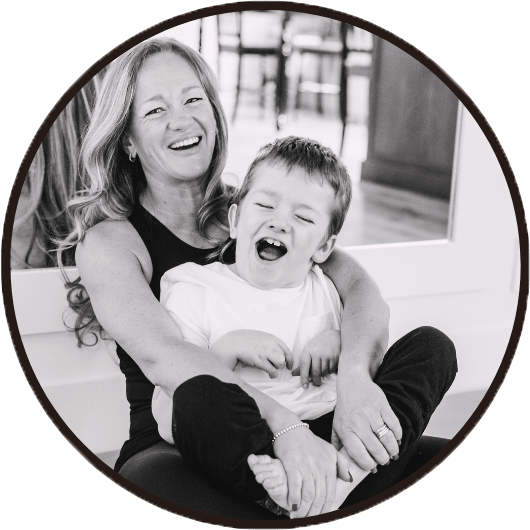William is his name and Dystonic Cerebral Palsy is his game.
William suffered a brain injury just after birth – Infant Jaundice/Hyperbilirubinemia are what caused his brain injury and the official diagnosis is Kernicterus. My little boy is the apple of my eye but man oh man it has been a journey and will continue to be a journey for the rest of our lives – challenge embraced.
This type of brain injury is rare in first world countries because it’s preventable. And because it’s rare and can vary in severity, we had no idea what treatments, therapies and supports William would need. We had no idea how the brain injury would manifest in our little boy and outcomes for this brain injury can look very different from one child to another.
William was born in late November and I vividly remember his first Christmas. I was so relieved when my mom and dad arrived and could take over the mama bounce and pat while he cried in their ears. Nothing calmed him! I was exhausted! I was frustrated! I felt like a bad mom! I felt shame and fear! But I also felt an enormous amount of love!
The love is what allowed me to realize that William requires me to parent in a different language. All I had to do was learn the language – challenge accepted!
I had to learn how to feed him safely, how to calm him, how to decrease stimulus for his sensitivities and learn how to manage every bodily function in new ways. It was kind of like establishing new parenting muscle memory.
While I was learning, he cried a lot and so did I.
I studied every movement, every sound, every facial expression and in the peaceful moments I took note of what could have possibly brought him that peace. My husband spent time researching therapies, medications and all of the sub-diagnoses that go along with Kernicterus. We joined parent groups and we asked questions. I built a medical team around William who support our family fiercely. We slowly built our toolbox of strategies and now, 9 years later we have a pretty good handle on William’s needs but they are ever-changing and usually that means he needs more interventions – more meds, more physio, more equipment, more specialists, more support, more appointments.
Every day I learn a few more words in William’s language and I’d like to think that I’m becoming more fluent.

